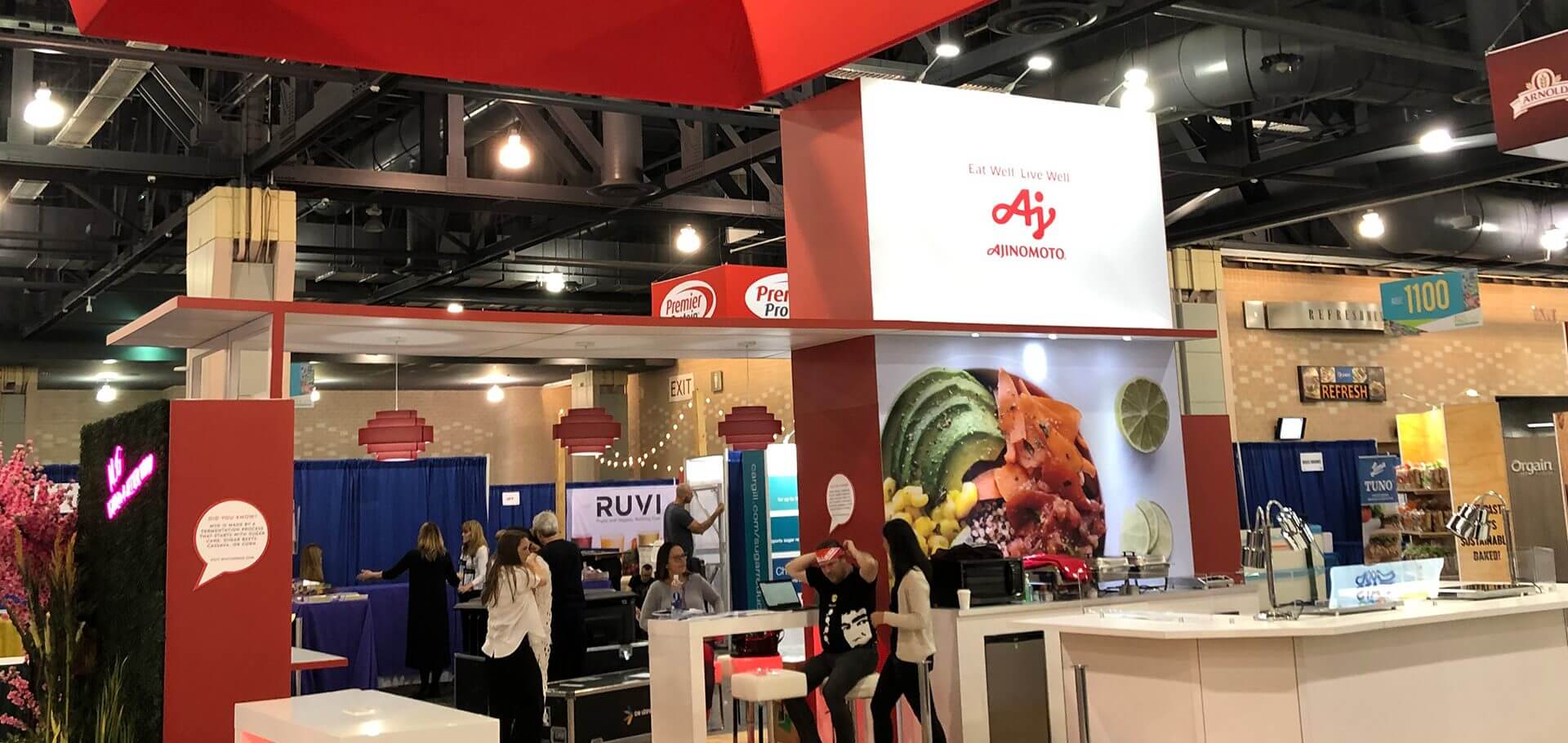Reading Time: 2minutes
By now we’ve all heard that eating more plants is better for our health. Recently, a succession of often-overlooked vegetables – kale, Brussels sprouts, and cauliflower come to mind – have been hailed as nutrient-rich “superfoods.” Whichever of these tempts your palate, one thing is clear: the best option for everyone is a diet rich in vegetables, fruits, whole grains, and lean sources of protein, without excessive levels of sodium. The key to achieving these goals could well be the flavor enhancer MSG, which makes plant-based dishes taste delicious with less salt.
This was one of the concepts that drew some 11,000 registered dietitians and food industry leaders to Philadelphia from October 26 to 29 for the Food & Nutrition Conference & Expo (FNCE) 2019. Among the major trends this year were plant-forward eating, labeling transparency, and food and agricultural sustainability. Health food makers touted grain-free products as a new gluten-free option and nuts as an alternative plant-based protein source, among others. The Ajinomoto Group’s presence at this, the largest conference of registered dietitians in the U.S., underlined our commitment to “Eat Well, Live Well.” Our booth was centered on dispelling myths and sharing facts about MSG through educational handouts and one-on-one conversations with attendees.

The Group was also one of the few exhibitors to focus on sodium-reduction with our quinoa bowl lunch and tasting samples. Packed with fiber, protein, B vitamins, and minerals, quinoa is gaining favor among dietitians and health-conscious consumers. But for people unaccustomed to eating predominantly plant-based foods, MSG can be a key flavor enhancer that makes quinoa and similar dishes more flavorful, if not downright delicious. Our quinoa bowl stood out as one of the only warm, savory items on offer, versus snack foods or beverages. The booth proved a huge draw, with 1,500 bowls distributed and 1,300 tastings conducted. As one participant commented, “I didn’t even know I liked quinoa – this is delicious! Not only that, the visitors also received a special shaker with 50:50 blend of salt and MSG to easily utilize the seasoning in their cooking at home.
Meanwhile, in associated webinars and interactive sessions, experts mentioned the safety of MSG as a plant-derived flavor enhancer that can help reduce sodium consumption and addressed issues such as how people with special dietary needs can get more enjoyment out of eating. Attendees were keen to learn about the role umami plays in the human diet. By engaging them at multiple points of contact, sharing information about sodium reduction and amino science, we were able to dispel some of the lingering misinformation about MSG and invite them to savor the experience of healthy eating.

